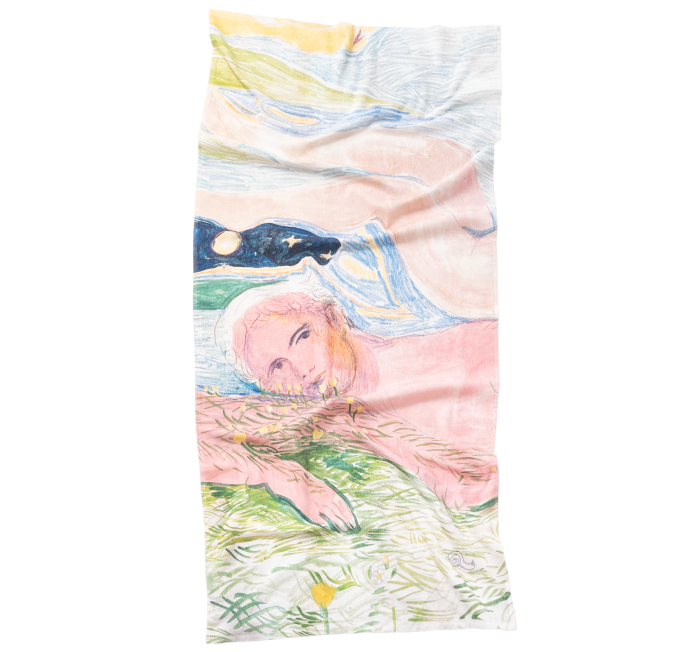What does your beach towel say about you?

Roula Khalaf, Editor of the FT, selects her favourite stories in this weekly newsletter.
The beach towel is getting its time in the sun. Call it a full-circle moment: invented during the Ottoman Empire, the original towels (and what we now call terry cloth) took the form of a peştamal: hand-woven and costly, these lightweight cotton sheets were a status symbol marketed to upper-class thermal bath-goers in cities such as Bursa. Now, after years of being relegated to holiday afterthoughts, a handful of brands are making the beach towel covetable once more.
The midcentury modernist: Baina

Antipodean label Baina was founded in 2019 by childhood friends Bailey Meredith and Anna Fahey, and its signature tile-inspired checkerboard motif has found favour in New Zealand and Australia before launching in the US and, more recently, the UK. The pair decided to steer into homeware because the category is “free from cyclical pressures and seasonality – there’s no size curve and it’s a functional everyday product, so it really appealed to us”, says Fahey. Sold alone or as part of the brand’s giftable bathing sets, the 100 per cent organic cotton bath sheets and towels walk the line between understated and playfully nostalgic (see colourways such as the warm Paloma red and calming ecru).
The retro-ist: Autumn Sonata

Even the savviest salesperson would struggle to sell a vintage towel. Which is why archival consultant Lilli Elias thought of bringing antique prints and textiles into her Amsterdam-based brand Autumn Sonata, which she launched in 2021. Made in Portugal and designed to be mixed and matched, Autumn Sonata’s reversible bath sheets and towels reference Indonesian ikat weaving, Japanese katazome stencilling and South Italy’s tile work, all in earthy shades of walnut, navy and cream. The brand’s new beach towels – which feature Japanese Edo stripes and Italian beach umbrellas – will launch at the start of August but are available now for presale.
The sex positivist: Carne Bollente

Considering Carne Bollente’s irreverent take on streetwear – think cheeky “orgasm” socks and provocative embroidered hoodies – it was only a matter of time before the Parisian brand, helmed by Hijiri Endo, Théodore Famery and Agoston Palinko, brought its sex-positive slant to the beach. Bright and unabashed, the brand’s animated towels depicting streakers or mating animals are the ultimate icebreakers. What’s more, one per cent of every online sale goes to AIDES, the leading HIV/AIDS non-profit in France.
The nostalgist: Tekla

Best known for its unisex poplin sleepwear and solid and striped towelling, the Danish brand has brought back its beach towels for a seasonal run. The collection features three colourways (liquorice and sky blue, candy-pink and blue, and black and forest green) which, for those so inclined, pair with the brand’s new terry cloth bucket hats. “Being based in Denmark, where there’s a common summerhouse culture and endless coastlines, we’re constantly inspired by the Danish connection to the beach and spending time in nature,” says managing director Kristoffer Juhl. “The nostalgia of a summerhouse retreat, where you would take your bedding and towels with you, often serves as a reference in our designs.”
The classicist: Nimu

A love for bathing runs deep in Roman culture. Nimu’s towels are woven on jacquard looms using a blend of linen and cotton – according to the company, this makes for an especially absorbent, soft and light finish that makes them ideal for both lounging on and wearing as a pareo, or sarong. Each piece in the collection, which features sun-baked colourways and satisfying geometric patterns inspired by local architecture, is named after a holiday hotspot in Italy and has a wrinkled, well-worn feel. Considering the brand bases its values on Roman engineer Vitruvius’s masterwork De Architectura – where he wrote that all buildings should have strength, utility and beauty – you can bet on its towels lasting many a summer.
Comments